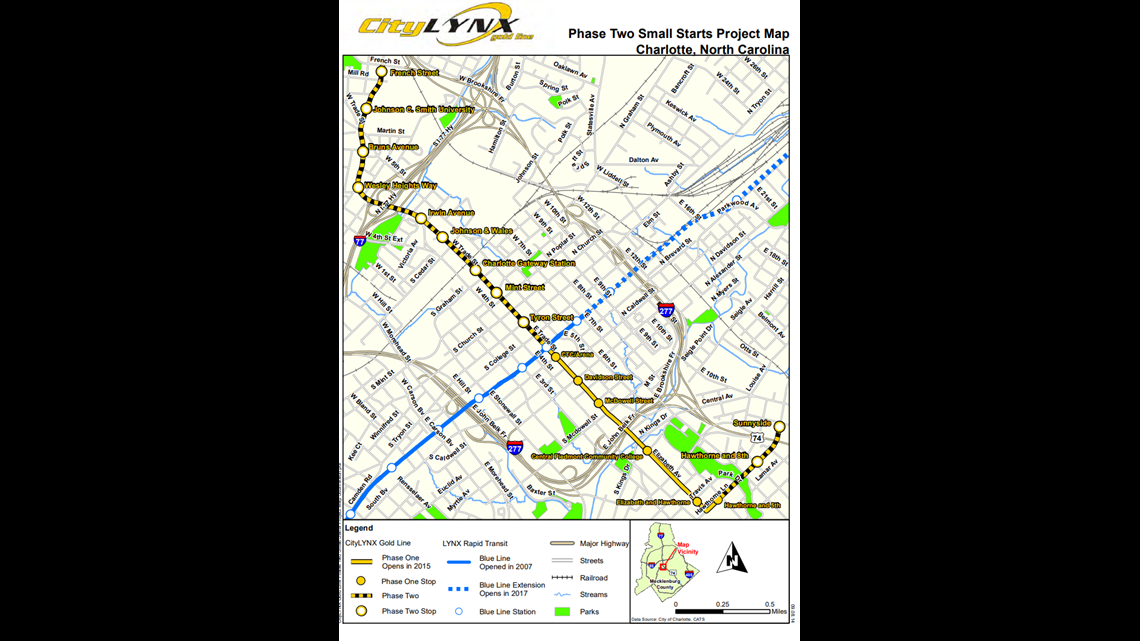All aboard! Charlotte eyeing new train lines, airport expansion
A light rail from Belmont to Matthews, a new runway at Charlotte Douglas, and a high-speed rail to Atlanta are all proposed but can they all happen?
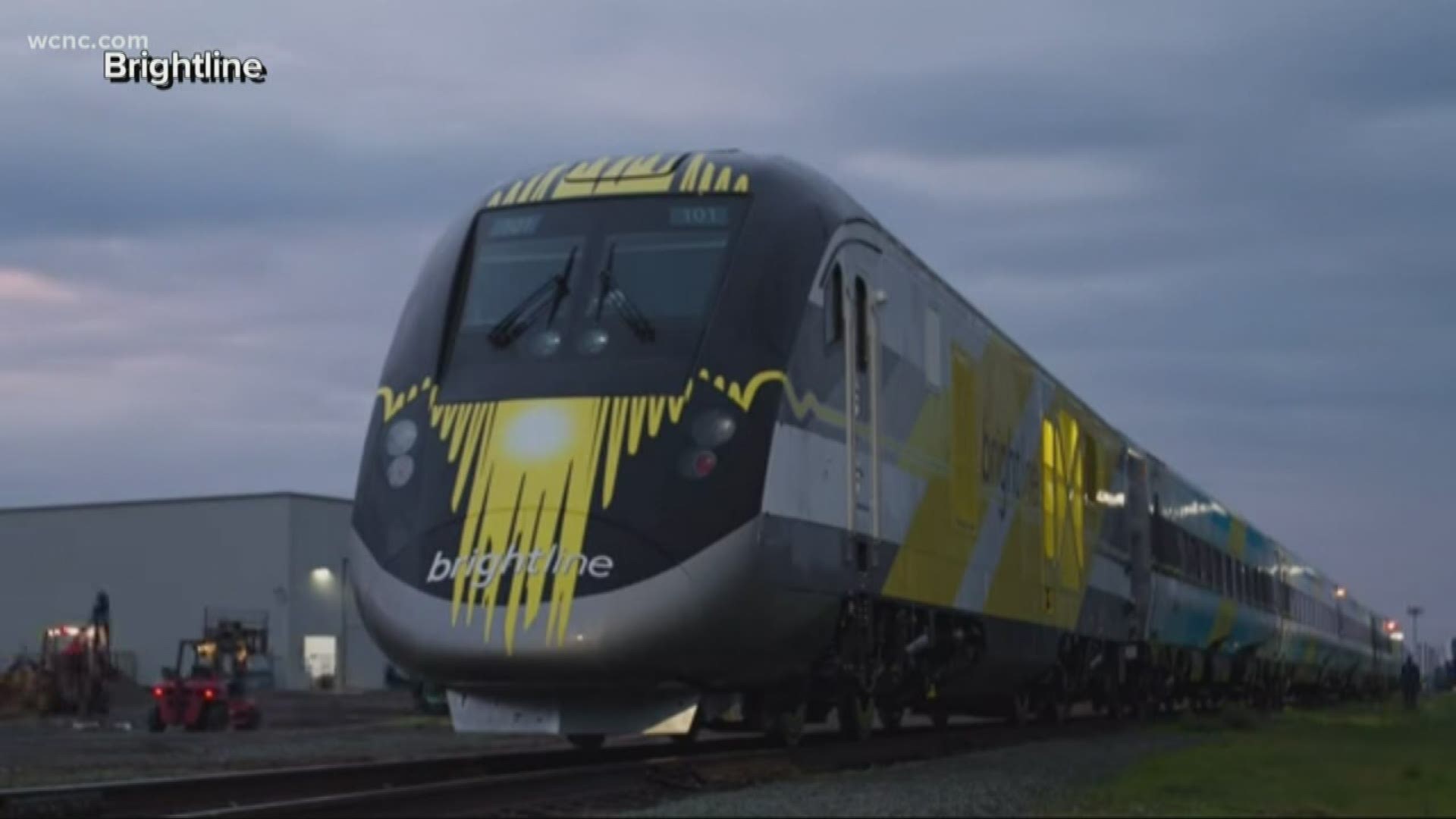
There could soon be major changes to Charlotte's growing transportation system, including a possible high-speed train and a new light rail system connecting Belmont to Matthews.
Not to forget, there is also the continued construction of the I-77 toll lanes, and the construction of new toll lanes on I-485. While the interstate projects are already active and underway, the trains, along with a separate plan for expansion at Charlotte Douglas International Airport, are all proposed ideas.
They all sound great but the bottom line is exactly that: the bottom line. Who will pay for these projects, where would they go, and most importantly, how much do they cost?
From Charlotte to Atlanta in 2 hours...by train? A new high-speed train could be rolling into the Queen City. How much will it cost?
The most talked-about project this week was a high-speed train that would connect Charlotte to Atlanta. Transportation experts said the rail would get people to and from both cities in about two hours, topping out at speeds over 220 mph. Passengers wouldn't have to worry about the headaches that come along with the airport or I-85.
"We need rail, and as this region continues to grow, we need to find ways to move people around," said Charlotte City Councilman Braxton Winston.
"As somebody who's gotten sick and tired of flying, I would probably be one of the first people to hop on it," said former Mecklenburg County Commissioner Jim Puckett. "But I don't think I want to pay for it."
Estimates for the project said it could come with a price tag ranging from $3 billion to $15 billion. And the train's path is still up in the air, with officials weighing three different layouts. One would basically follow I-85, another north of the highway, and a third route that runs south to Athens, Georgia before heading west into Atlanta. Ultimately, it comes down to efficiency, the environmental impact, and of course, the cost.

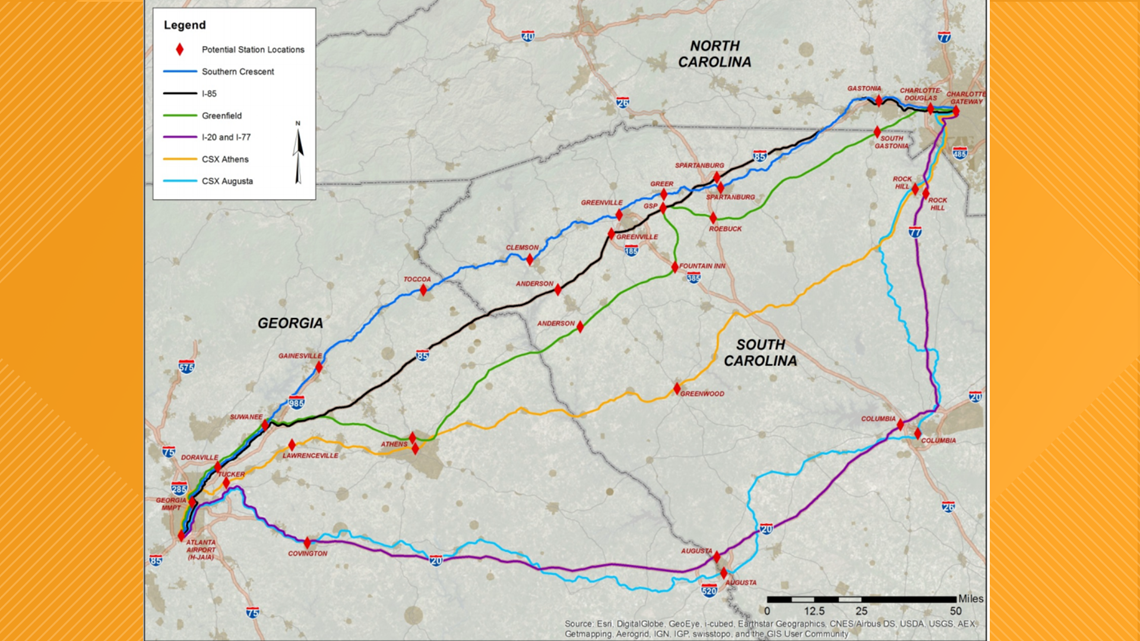
Puckett said he wants no part of the rail unless the federal government foots the bill. Winston believes it's important the city finds a way to make it happen.
"When it comes down to it, the most important investment we can make is in our people," Winston said. "As a government, you invest in your people predominantly through infrastructure, so we'll find a way to invest in our people and continue the growth of this city, this state and this region."
Officials behind the project are still asking for the public's feedback. If you were unable to attend a public meeting Thursday, you can leave comments online here until November 4.
As Charlotte grows, so does its airport The FAA says Charlotte already has excessive delays. Would a major expansion solve it?
If a high-speed train from Charlotte to Atlanta doesn't sound realistic, perhaps a more modest proposal is that from Charlotte Douglas International Airport. Officials want to add a fourth runway, bringing even more flights to one of the country's busiest airports.
Jack Christine, COO of the airport, said Charlotte already has excessive flight delays, citing data from the Federal Aviation Administration.
"We've seen additional flights year over year, we've seen additional passengers years over year," Christine said.
He said there is a need for a $2.5 billion investment to add a fourth, 10,000-foot runway. This proposal also includes new taxiways, 10 to 12 additional gates in Concourses B and C. It would also include a new parking deck at the airport's north entrance.

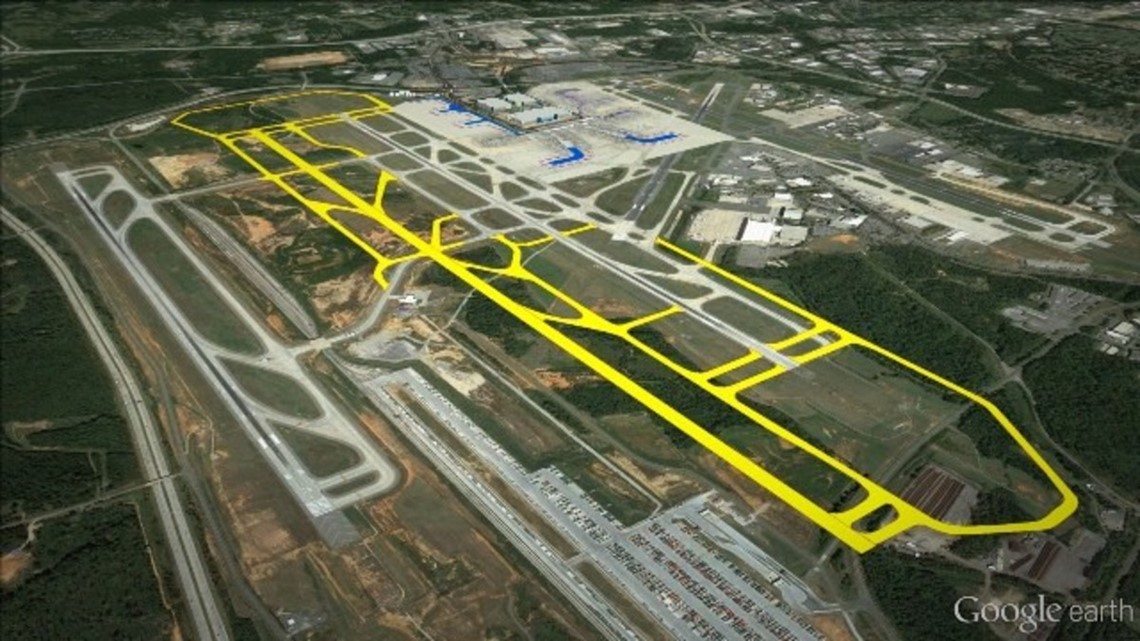
More flights means more noise for neighborhoods surrounding the airport; something that isn't exactly a popular idea for those communities.
"When I sleep at night, I hear the planes. When I wake up, I hear the planes. I can't open the windows like I want to without hearing the planes," said Aldrene McGill, who lives near the airport.
Tony Scott said airplanes fly over his home every few minutes.
"If you're outside in your yard, you're going to hear planes all day long," he said. "The last 12 years that I've lived here, it's just gotten that much worse."
On Thursday, airport officials held an open house meeting to discuss the environment impact of the proposed expansion. Christine said officials still don't know what kind of impact the expansion would have on the noise. Neighbors said they just want to be heard before any decisions are made.
"As far as impacts, we're not there yet. That's what this process is all about," Christine said.
Another major light rail project in the works The 26-mile rail from Matthews to Belmont is ambitious. And still over a decade away, once officials find a way to pay for it.
There are also plans to expand Charlotte's light rail service from Matthews to Belmont in Gastonia. The 26-mile light rail would run along Highway 74 and include stops at Charlotte Douglas International Airport.
On Monday, the City Council is expected to vote on whether CATS should begin preliminary work on the Silver Line project. The cost of the project is unknown, but city leaders said earlier this year they'd like to have it up and running by 2030.
"If I could wish for anything, it would be that we could move our transit line and get it done more quickly than we can," said Mayor Vi Lyles.

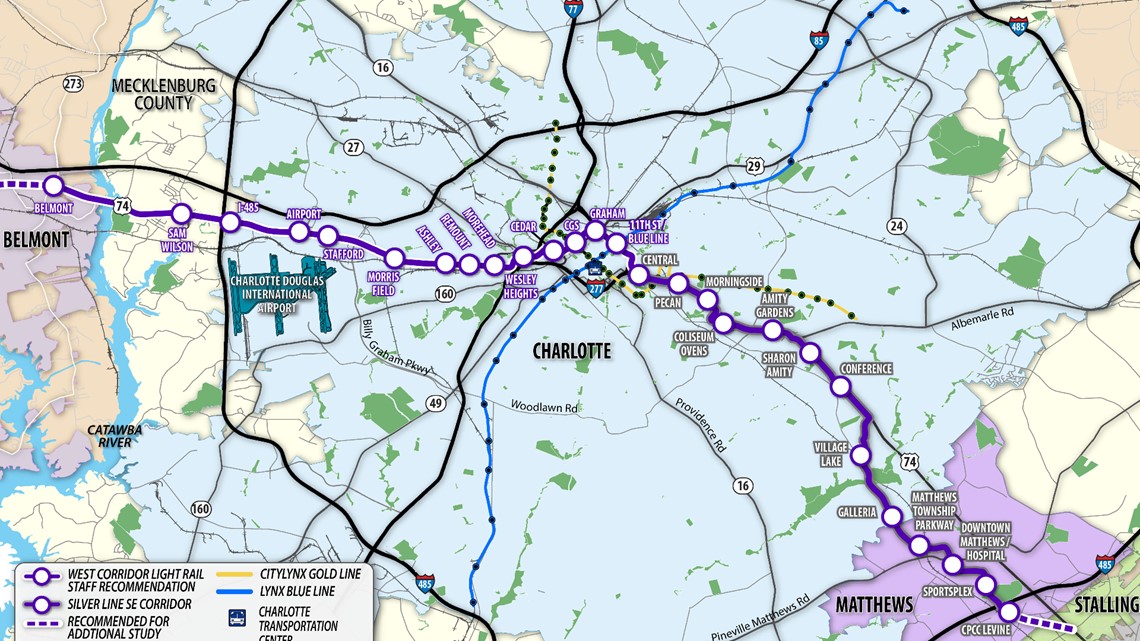
Monday's meeting would allow the City Council to approve contracts the Charlotte Area Transit System needs to initiate the design and planning of the rail line.
Donny Hicks, the executive director of the Gaston County Economic Development Commission, said the light rail extension would help reduce rush-hour congestion and spur investment.
"The investment opportunity would be huge," Hicks said. "We think it could help us immensely solve transportation problems and improve the development opportunities that we have."
CATS is also continuing its work on the Gold Line streetcar to Johnson C. Smith University. The Phase 2 project is extending the service 2.5 miles east and west of the current line.
CATS hopes to Phase 2 of the Gold Line completed by the 2020 Republican National Convention.

